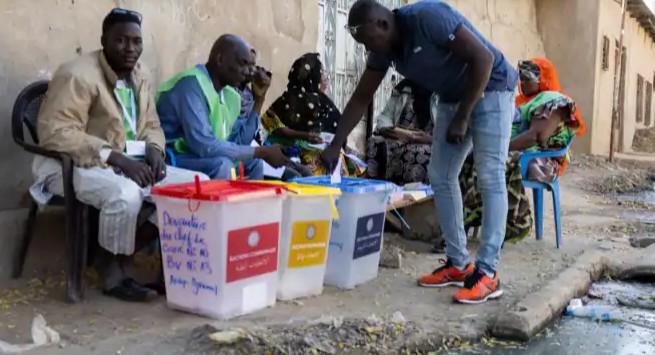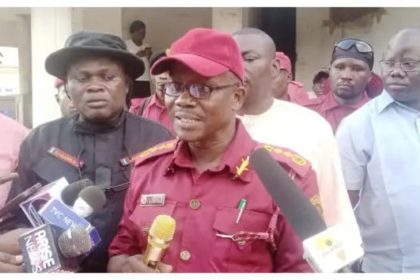An air of tension grips Chad as the nation faces a political crossroads following the contentious December 29 general elections. The polls, which were intended to bring an end to a three-year transitional period following the death of longtime President Idriss Deby Itno in April 2021, have instead ignited a firestorm of opposition. Critics argue the elections were a sham, alleging widespread boycotts and irregularities, and are calling for an immediate end to the transitional government led by Mahamat Idriss Deby, the late president’s son.
Chad’s National Agency for the Management of Elections (ANGE) has pledged transparency, dismissing allegations of misconduct. Assane Bairra, ANGE’s vice president, stated that vote counting is underway, asserting that irregularities, though reported, will not influence the results. He described the elections as a milestone for Chad’s democracy, emphasizing that the electoral process was conducted freely, fairly, and transparently. According to ANGE, approximately 36% of the country’s 8.3 million registered voters participated in the polls.
However, opposition leaders have vehemently disputed these figures, claiming that voter turnout was much lower. They insist that most Chadians adhered to calls for a boycott, viewing the elections as a ploy by Mahamat Deby to extend his grip on power. Avocksouma Djona, spokesperson for the Political Actors Consultation Group (GCAP), a coalition of opposition parties, claimed during a press conference in N’Djamena that more than 90% of registered voters refrained from casting their ballots in protest.
Djona argued that the low turnout reflected the electorate’s disillusionment with the transitional government. He accused Deby of perpetuating the authoritarian legacy of his father, who ruled Chad for over three decades. “Chadians are angry because Deby is a dictator who silences all critical voices,” Djona said. He alleged that the ruling Patriotic Salvation Movement had orchestrated the elections to secure an inevitable victory, dismissing the polls as a sham.
In the lead-up to the elections, opposition groups accused Deby’s administration of widespread voter suppression and election rigging, including ballot box stuffing. These claims have been staunchly denied by the government, which maintains that the elections were conducted in accordance with international standards.
Prominent opposition figure Succes Masra, president of The Transformers party, has called for the establishment of a new transitional government. Masra, who previously served as prime minister under Mahamat Deby, released a statement emphasizing the need for truth, dialogue, and reconciliation to lay the groundwork for a stable and inclusive political system. He warned that the ongoing tensions could spiral into violence if left unaddressed.
Masra described the current transitional framework as deeply flawed, arguing that it failed to reflect the will of the people. He urged the international community to pressure the Chadian government into pursuing genuine democratic reforms, warning that the nation risks descending into further instability.
Despite these warnings, government officials have rejected opposition demands to annul the elections and initiate a new transition. They have accused opposition leaders of inciting unrest and attempting to destabilize the country. The government has urged citizens to remain calm and resist calls for protests, framing such actions as threats to national unity.
Political analyst Yamingue Betinbaye from the University of N’Djamena believes that while the opposition’s grievances have merit, their demands for annulment are unlikely to gain traction. Betinbaye acknowledged that the boycott was significant and that allegations of election irregularities, including ballot stuffing, were credible. However, he argued that the transitional government is unlikely to concede to opposition demands, given the stakes involved.
“The opposition’s claims highlight legitimate concerns about the electoral process, but the government will not easily yield to pressure for annulment,” Betinbaye said, adding that the current political crisis underscores the deep divisions within Chadian society.
As the electoral body continues to tally the votes, the release of provisional results, expected by January 15, looms large. The outcome could either provide a semblance of resolution or exacerbate the already fragile political climate. For now, Chadians are left to navigate a precarious period, marked by uncertainty and mistrust.
Observers have expressed concern over the potential for escalating unrest, noting that the stakes are high for both the government and the opposition. The elections were seen as a pivotal moment for Chad, offering an opportunity to transition from military rule to civilian governance. However, the controversy surrounding the polls has cast doubt on the legitimacy of the process and the prospects for a peaceful transition.
The December 29 elections were intended to close a tumultuous chapter in Chad’s history, following the sudden death of Idriss Deby Itno during a battlefield engagement with rebels. His son, Mahamat Idriss Deby, took the reins as head of a transitional military council, pledging to oversee a democratic transition. Yet, critics argue that his tenure has been characterized by authoritarianism and a lack of meaningful reforms.
Chad’s political landscape remains deeply polarized, with the opposition accusing Deby of consolidating power at the expense of democratic principles. The government, on the other hand, has portrayed opposition leaders as agitators seeking to undermine national stability.




